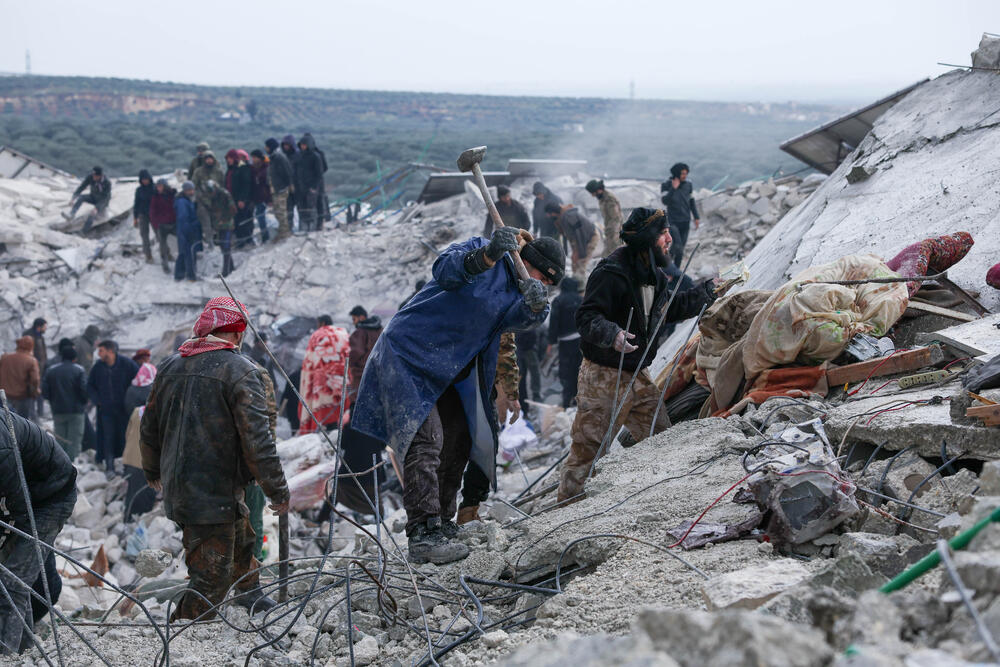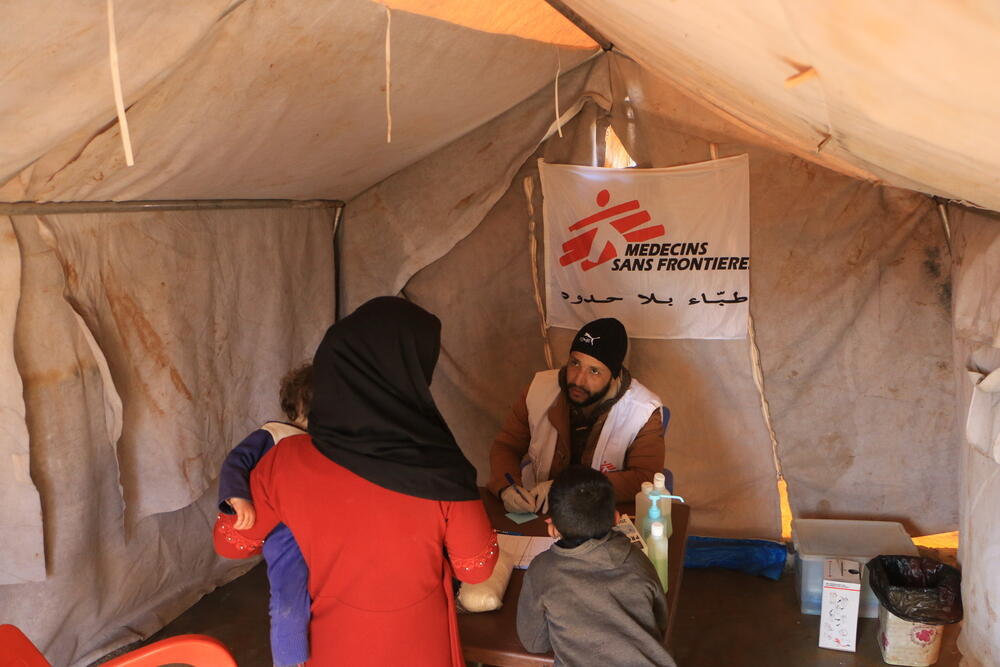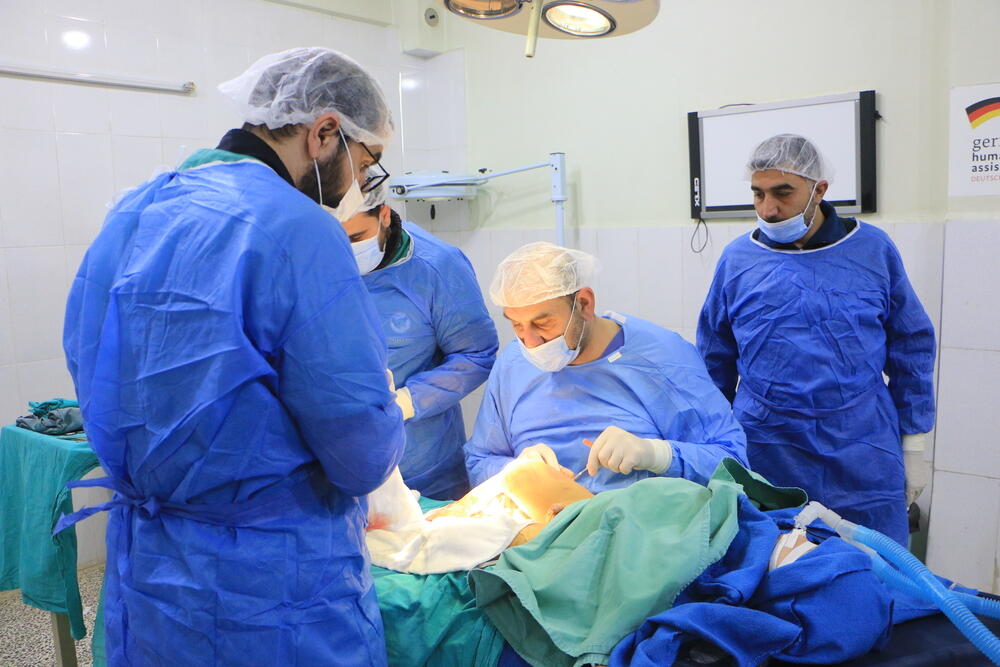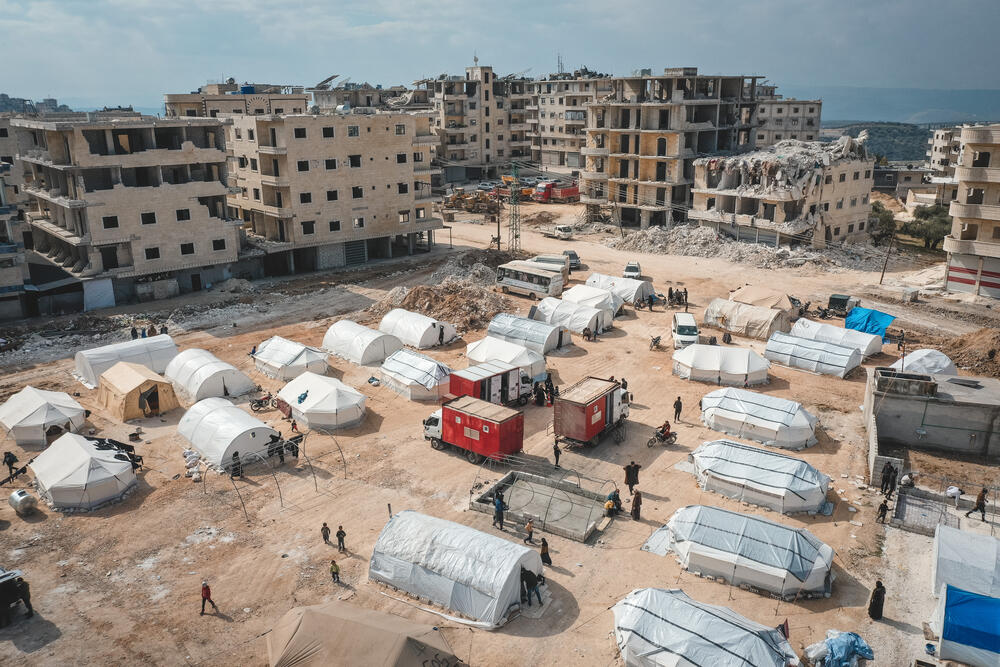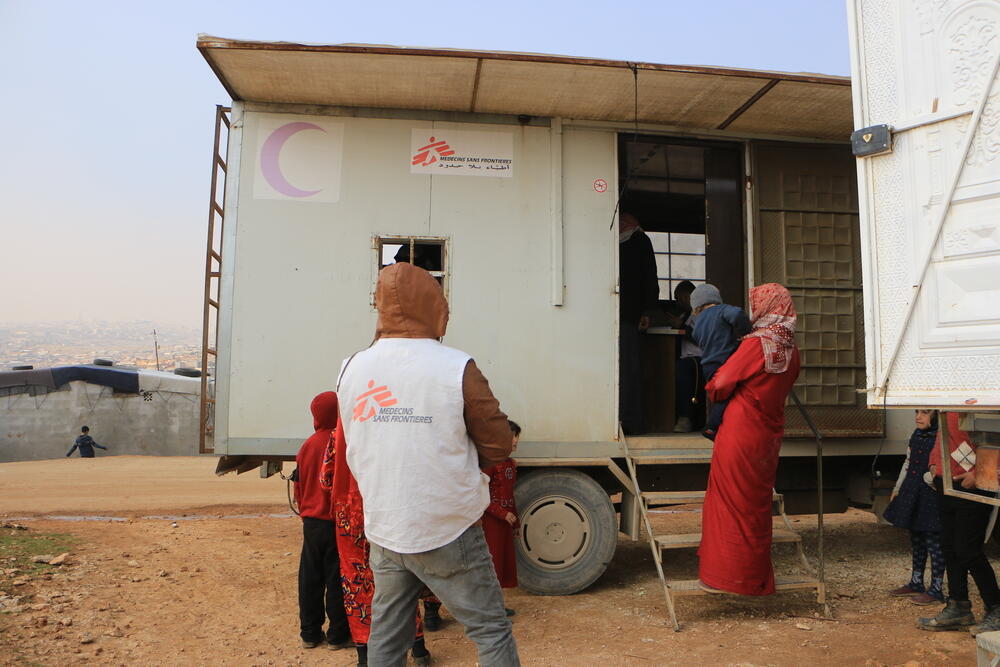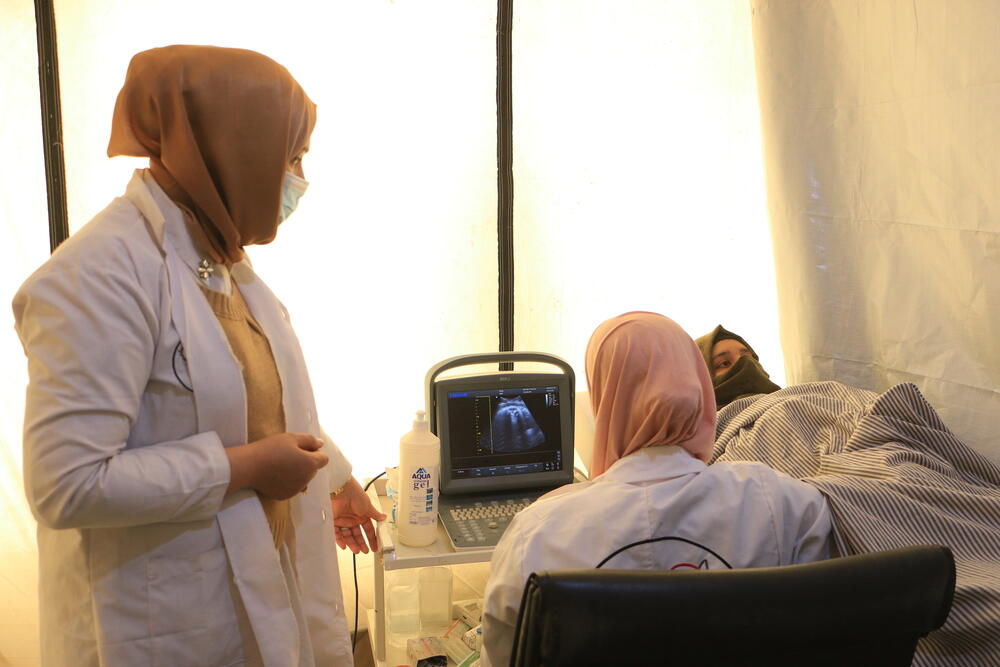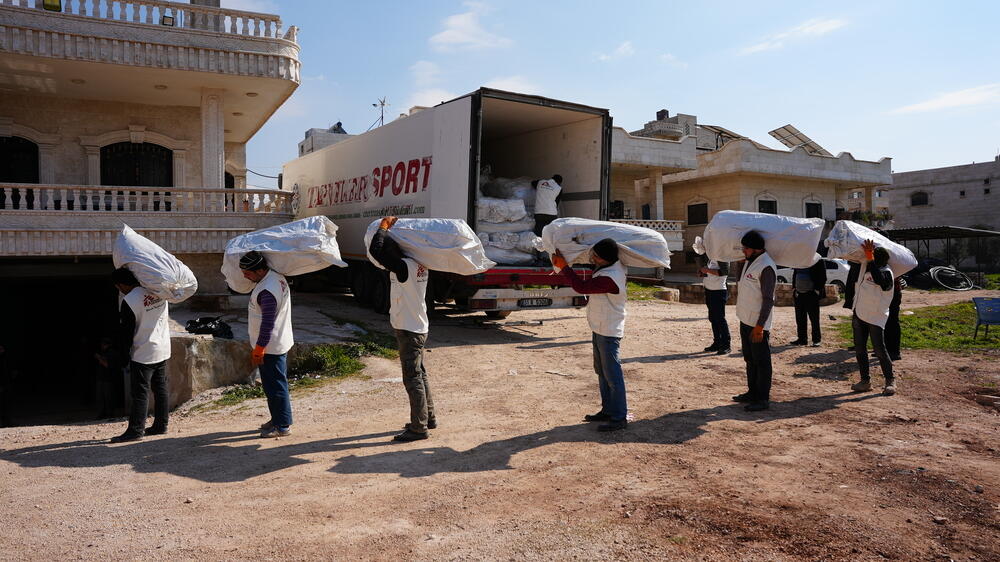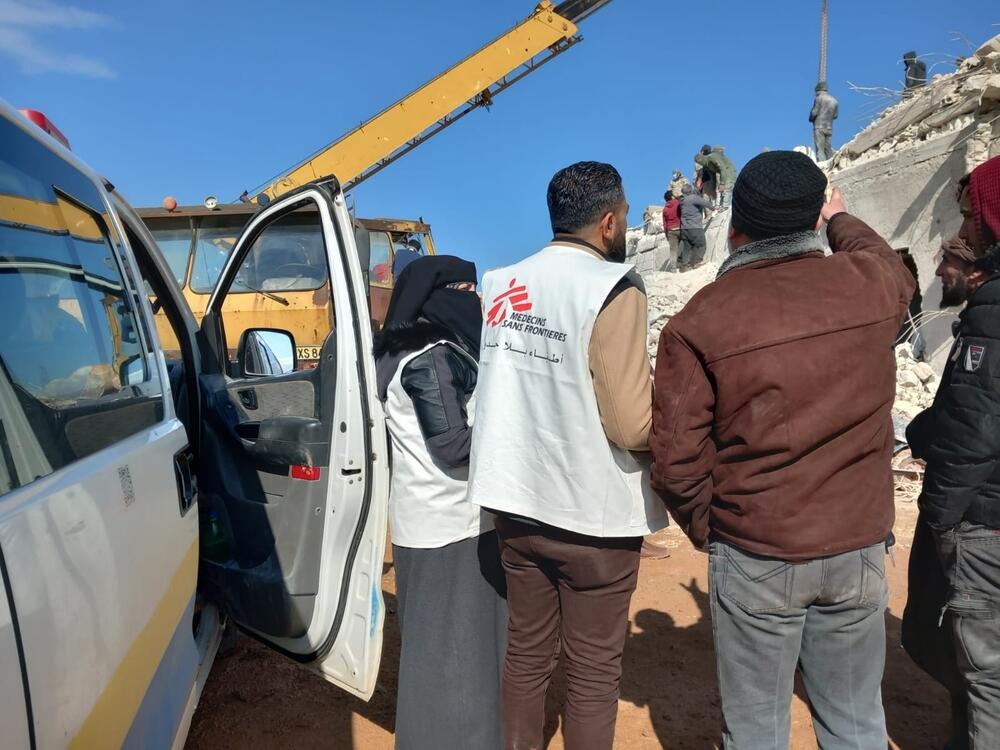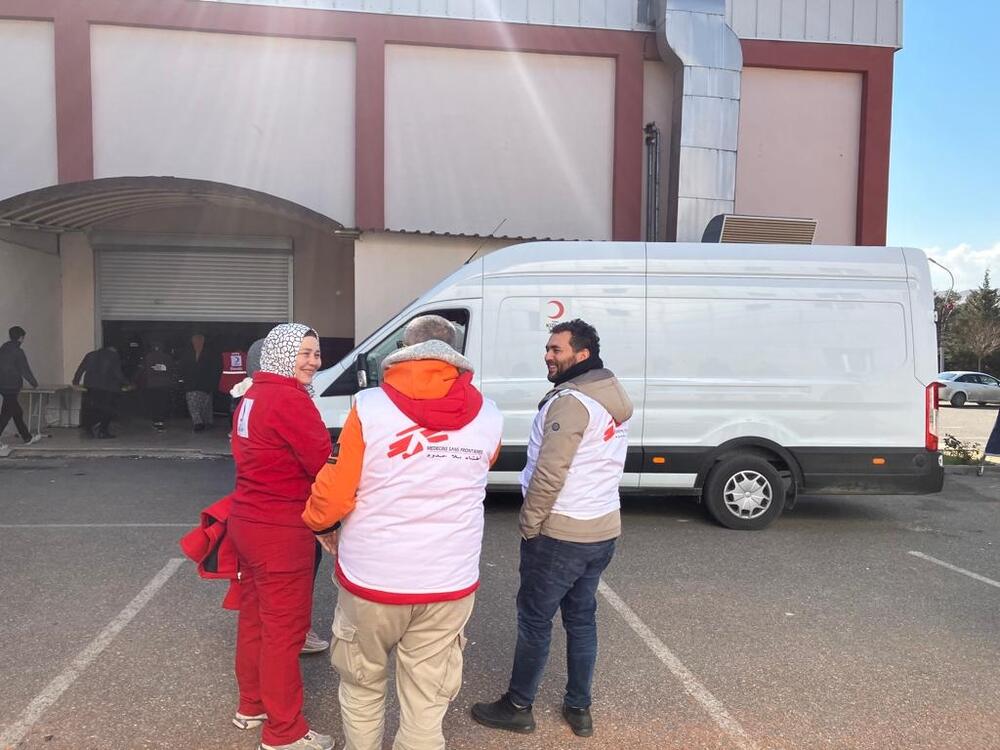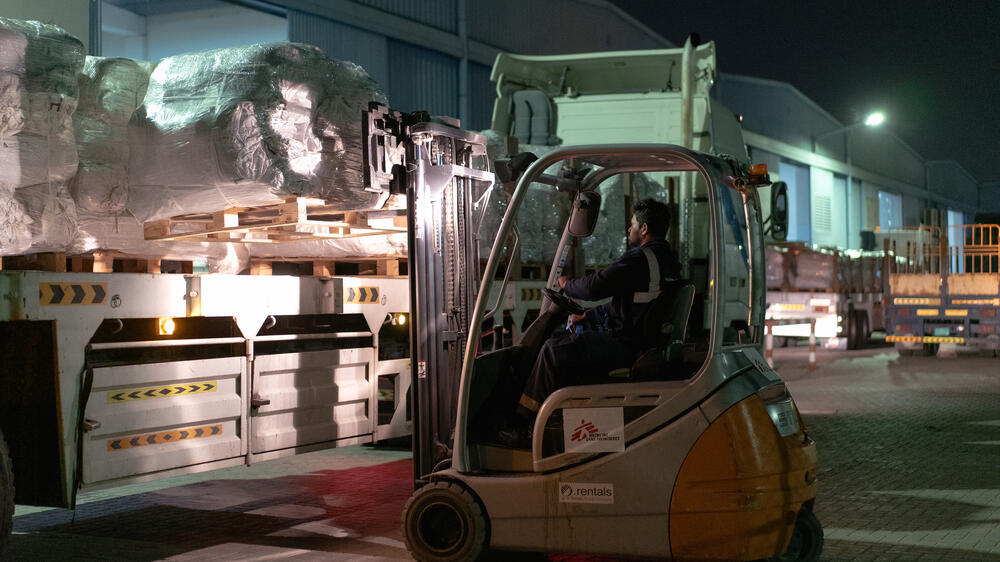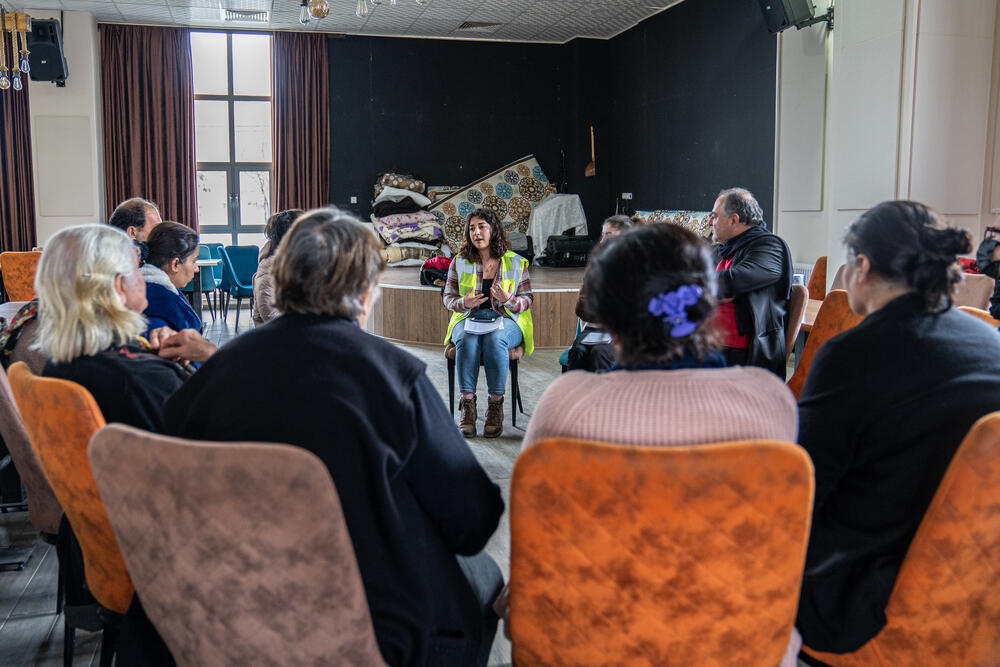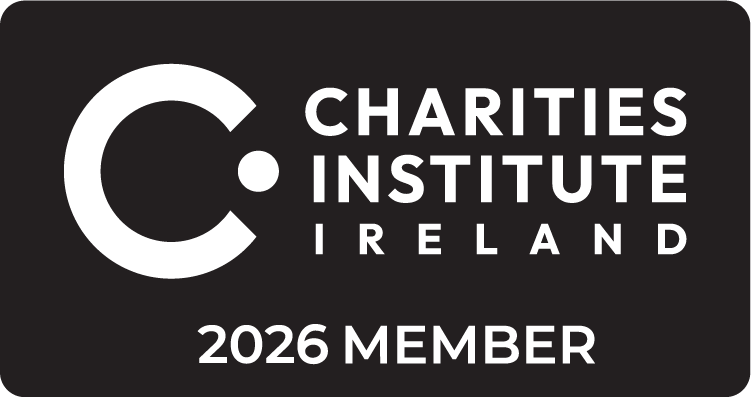MSF responds to overwhelming needs, after earthquakes hit south Türkiye and northwest Syria
6 February 2023
Update, 10th May 2023: On February 6, 2023, magnitude 7.8 and 7.6 earthquakes struck southeast Türkiye and northwest of Syria, between 4:17 and 4:30 a.m. local time. The initial earthquake, which was centred near Gaziantep in south central Türkiye was the deadliest earthquake to hit the region in twenty years. Since then, over 22 thousand aftershocks have happened and continue happening, including smaller earthquakes that have caused again casualties and destruction.
As of the 9 May 2023, more than 56,000 people have died, and millions have been affected following the earthquakes in both countries.
Key numbers
- Three months after the earthquakes, about 7,300 deaths and more than 11,000 injuries were reported as a final toll across Syria.
- In Northwest Syria, around 10,600 buildings have been completely or partially destroyed.
- Atleast 53000 families were displaced throughout Syria following the earthquakes and need a form of shelter assistance.
- According to OCHA, 55 medical facilties in Syria have been damaged and several completely destroyed.
- As of 22 April, more than 51,768 people have died (Source: AFAD) following the earthquakes in Türkiye. Since February 6, there have been more than 28,000 aftershocks in the affected region.
- According to OCHA, more than 9 million people have been directly affected in the southern part of Türkiye.
What is the situation in Northwest Syria?
Following the two strong earthquakes many buildings in northwest Syria collapsed leaving thousands of people homeless. Many hospitals have been damaged, with some, such as the hospital in Jandaris, unable to carry on treating patients. Two MSF-supported maternity centers were evacuated, due to the risk of the buildings collapsing. Our medical staff and the staff of other facilities have been working hard to treat patients since the first earthquake.However, humanitarian needs remain acute.
There was major destruction in large buildings in urban centers, more so than in places where people live in temporary shelters. The locality of South Afrin (Jandaris), Aleppo Governorate, might be the most affected area.
Throughout the region thousands of houses and buildings have been destroyed, leaving thousands of people homeless. To make matters worse, the temperatures are very cold, while people remain outside with many sleeping in their cars due to the fear of further aftershocks that have continued until yesterday.
Northwest Syria is already going through a dire humanitarian situation due to many years of war, the economic situation, the pandemic and, more recently, a cholera outbreak. This region hosts more than 4 million people, 2.8 million being internally displaced by the conflict. Many have been displaced repeatedly and live in precarious conditions. This earthquake makes the situation even more difficult while the medical and healthcare system continues to be fragile.
In March 2023, floods have been impacting northwest Syria. Atleast 50 displacement sites have been flooded and many of these camps had been set up to house families displaced by the earthquakes. More than 2,000 tents were destroyed or damaged during the floods.
What is MSF doing in Northwest Syria?
As of April 30, 2023,
- Relief items distributed: 110,835
- Mobile clinics consultations: 198,477
- Mental Health consultations: 8,026
- Hot meals funded by MSF: 16,800
SUPPORTING HEALTHCARE PROVISION IN IDLIB AND ALEPPO GOVERNORATES:
As an initial response following the earthquakes, MSF supported 36 hospitals and health facilities, through donations of emergency kits, trauma kits medical supplies, and blankets. This includes facilities in Idlib, Atmeh, Azaz, Afrin, Mare’, Bab El-Hawa, among other towns. We also sent medical staff, including surgeons, to assist hospitals in treating the influx of wounded. MSF further supported healthcare provision by rehabilitating a Primary Healthcare Center in Afrin as well as setting up a medical post/mobile clinic in Jinderis.
During the acute phase, MSF staff were among those affected but their focus remained in saving lives. In 4 health facilities (hospitals and clinics) in Idlib governorate, we treated injured patients, and we increased the capacity of the hospitals we’re working in by adding triage tents in the outside wards. In addition, we deployed our ambulances, and we supported 90 ambulances to facilitate the transfer of patients in need of emergency assistance to the closest health facilities.
MOBILE CLINICS:
Two weeks after the earthquakes, MSF scaled up their efforts by deploying up to 14 additional mobile clinics in several reception centres and different camps across northwest Syria. The aim is to offer essential medical services to people affected and displaced by the earthquakes.
MENTAL HEALTH SERVICES:
Our teams launched a mental health hotline that is accessible to people, that is being communicated in the community through our health promoters and mental health specialists. MSF offered psychological first aid in the mobile clinics and health centres supported and set up safe spaces for social and recreational activities for women and children. We also created a Psycho-social Care Unit strategy to support our staff, which were affected by the disaster.
OFFERING RELIEF SUPPORT TO AFFECTED FAMILIES:
The second phase of MSF's response involved shifting from an acute emergency response to a more planning and strategic approach that focuses on the unmet needs and gaps. The efforts have been scaled up by distributing more releif items, implementing water and sanitation activities, and continue deploying mobile clinics.
In Northwest Syria, MSF along with our local partners, distributed more than 110,800 relief items including heating kits, hygiene kits, kitchen kits and including more than 6000 tents and 37000 blankets. MSF also supported bakeries to provide more than 367000 bread to the affected people.
WATER AND SANITATION ACTIVITIES:
In Idlib governorate, MSF provided water and sanitation activities in 18 camps for the displaced people. This included rehabilitating latrines, providing water trucking, installing water tanks, and supporting waste collection services. MSF also provided mobile latrines and water and sanitation support to camps receiving new IDPs. In Aleppo governorate, MSF collaborated with local partners to install latrines and water tanks, provided chemicals to a water treatment plant in Afrin city and provided clean water to people.
More recently, MSF have started the third phase of the emergency response in which it focuses on long term strategic activities to ensure continuity and sustainability of healthcare provision in Northwest Syria.
CONSTRUCTION OF A NEW MATERNITY IN JINDIRES, ALEPPO:
Following the destruction of the maternity centre supported by MSF in Jindires, MSF is currently in the process of building a new maternity centre which will provide a safe and convenient space for pregnant women and new borns. In Idlib governorate, MSF is also rehabilitating three hospitals and PHCs which it already supports in Salqin, Al-Maland and Heyr Jamous, after it was partially destroyed by the earthquakes.
RECREATIONAL ACTIVITIES:
MSF is currently providing recreational activities and psychological aid to people, particularly children, who are residing in collective shelters in Aleppo governorate. This can include activities such as games, sports, arts and crafts and storytelling. These activities provide a much-needed distraction from the stressful and uncertain environment of the shelters and can help build social connections and sense of community.
RECONSTRUCTIVE SURGERY:
Thousands of people got injured during the earthquakes and due to the severity of their injuries, emergency surgeries were performed to stabilise their condition. However, emergency surgeries typically prioritize saving the patient's life rather than focusing on cosmetic or mobility concerns. This means that many of the patients who underwent emergency surgeries may require follow-up and reconstructive surgeries to prevent scarring and mobility issues in the future. To address this need, MSF is currently supporting a hospital in Idlib governorate to provide follow-up and reconstructive surgeries to the affected people to help minimize the long-term physical effects of the injuries.
DONATIONS/ MSF AID INTO NORTHWEST SYRIA:
To maintain the continuity of our support, MSF brought in northwest Syria over 40 trucks containing essential medical and non-medical items and distributed them to those affected by the earthquakes.
The flow of humanitarian aid into northwest Syria:
The humanitarian aid coming into northwest Syria has been extremely limited and too slow especially during the first two weeks after the earthquakes. There has been strictly no Search and Rescue materials or teams entering NWS to support the essential first day's search for survival not in Idlib, nor in North Aleppo that is controlled and administrated by Türkiye.
Bab Al-Hawa was the main UN supported humanitarian crossing between Türkiye and northwest Syria, from which essential life-saving medical supplies can enter northwest Syria. On February 13, two additional humanitarian crossing points of Bab Al-Salam and Al-Ra'ee from Türkiye to northwest Syria were announced open for an initial period of three months with the aim to ensure a timely and effective delivery of the humanitarian aid.
As of 31 March, more than 1200 trucks loaded with aid provided by seven UN agencies have so far crossed to northwest Syria through Bab Al-Hawa, Bab Al-Salama and Al-Ra'ee.
In addition to these 3 crossing points, there are other commercial crossing points that are not related to UN border crossing resolution access points. They are open for trade and local NGOs supply from Turkey to Northwest Syria (Al Hammam and Jarablus). Convoys with non-medical supplies, as well as authorized staff, are able to use these crossing points, through local partners.
A total of 53 MSF trucks crossed into northwest Syria since the earthquakes, with the collaboration of local partners. We support the call for more access points to be made available for humanitarian help to enter northwest Syria.
International aid must be urgently scaled up to preserve the lives and dignity of people living in affected areas and match the scale of the humanitarian crisis.
Moving forward, MSF will continue providing support in areas where we are present. MSF is committed to assess the needs regularly and provide support to those affected by the compounded crises, and we will adjust our activities accordingly to meet the evolving needs.
What is the situation in Türkiye?
According to the UN (OCHA), more than 9 million people have been directly affected in eleven provinces in the southern part of the country, which hosted a population of 14 million people before the disaster, 16% of the total population of the country.Across the most affected cities, thousands of buildings have been damaged: 56,426 buildings are either collapsed or urgently need to be demolished, 206,452 buildings have suffered severe damage, 48,984 buildings have moderate damage, and 516,352 buildings have minor damage, according to the Turkish Ministry of Environment and Climate Change. Despite the significant response by the authorities and the solidarity of the Turkish civil society, there are still unmet needs for many people affected by the earthquake.
Many people have lost their homes and economic activities, they have lost relatives and their loved ones and are living through very hard conditions. Some people are sad, desperate, anxious and uncertain about the future. Many relive the experiences in their minds and believe it could happen again. The provision of mental health support is crucial following all this suffering. With the coming of spring, heavy rain has also generated flooding, adding further difficulties, such as issues regarding appropriate shelter and water and sanitation conditions.
At present we are working in partnership with different local NGOs and civil society organisations to provide much needed humanitarian and relief assistance. We focus on neglected areas where our intervention can have an added value.
What is MSF doing in Türkiye?
In the early phase of the earthquake response, NGO's supported by MSF have been active in Adiyaman, Elbistan, Gaziantep, Islahiye district, Hatay, Kilis, Nurdağı district, Kahramanmaraş, Pazarcik, Kayseri, and Malatya. Local NGO's supported by MSF, donated generators for energy, hygiene kits and relief items (blankets, sleeping bags,power banks, electrical stoves, diapers), water and food, showers, tents in the makeshift camps, medical items and a vehicle for transporting medicine and fuel for mobile clinics.
In addition, MSF supported a local NGO in conducting mobile clinics focusing on mother and childcare (prenatal care, neonatal care, infant and childcare), as well as a made a medical donation of scabies treatment.
As of April 25, 2023, intersectional figures for supported activities in Türkiye:
- 7,668 people attended psychosocial activities
- 38,154 hygiene kits distributed
- 390,500 meals served
- 321 tents donated
Psychosocial activities for the affected population and volunteers include individual and group sessions, as well as donating pedagogical material for psycho-social workshops. In places like Adıyaman and Malatya, we are supporting local organisations in setting up clean, safe and warm spaces where they can find psychosocial support, spaces for breastfeeding, showers and toilets, laundry machinery, charging docs, amongst other services.
MSF has also supported and continues to support with donation and distribution of medical materials, food, water and logistical supplies, as well as tens of thousands of relief items, such as hygiene kits blankets, stoves and underwear. We also address the immense needs in water and sanitation with the constructions of showers and toilets and setting up and refilling water tanks in makeshift camps.
How can I help MSF to respond to this crisis?
Due to the unique way that MSF is funded, most of our donations are "unrestricted" and can be used wherever the need is greatest. The actions our teams are taking in the affected regions are funded by donations just like these.
Please consider donating to our emergency fund, which will give our medical teams across the world the valuable flexibility to respond as needs arise.
An international response
“We are very shocked and saddened by the impact of this disaster on the thousands of people touched by it, including our colleagues and their families”, says Sebastien Gay, MSF Head of Mission in Syria.
"The needs are very high in northwest Syria as this quake adds a dramatic layer for the vulnerable populations that are still struggling after many years of war”, adds Gay. “The massive consequences of this disaster will require an international aid effort that is up to the scale”.
MSF remains in close contact with the local authorities in northwest Syria and with the authorities in Türkiye to extend our support where it’s needed.
